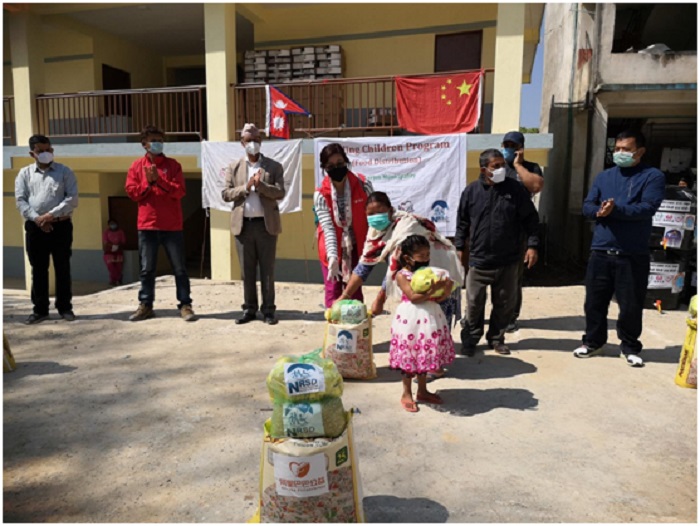



China’s non-governmental organizations (NGOs) have played an important role in the country’s poverty reduction efforts, which not only help satisfy the Chinese people’s yearning for a better life, but also effectively promote the realization of sustainable development goals (SDGs) and human rights, according to an online conference of the Contribution of Social Organizations to the Course of International Development, a parallel event of the 45th session of United Nations Human Right Council on Wednesday.
China NGO Network for International Exchanges held the conference. China’s NGOs – China Foundation for Poverty Alleviation, China Association for Preservation and Development for Tibetan Culture, China Green Foundation, China Foundation for Poverty Alleviation, China Foundation for Peace and Development, China Family Planning Association – attended the conference.
United Nations Industrial Development Organization, International Planned Parenthood Federation and other foreign NGOs, including Cambodia’s, Mongolia’s, and Ethiopia’s Maternity Foundation shared their contributions and experiences working with Chinese NGOs to promote domestic and international poverty alleviation.
According to the conference, Chinese NGOs have played an especially significant role in the process of fighting the COVID-19 pandemic, taking the initiative to reach out to people at home and abroad through material donations, infrastructure construction, volunteer dispatch, and experience sharing. The helping hand has enriched the ways of participating in development and embodies the special advantages of NGOs, said the spokesperson for the China NGO Network for International Exchanges.
Tan Weiping, deputy director of International Poverty Reduction Center in China (IPRCC) said at the conference that China has made decisive achievements in poverty reduction. This year, China will eliminate absolute poverty under current standards and complete the building of a moderately prosperous society in an all-round way, and the targets and tasks of poverty alleviation are nearly completed.
The number of people living in poverty decreased from 98.99 million at the end of 2012 to 5.51 million at the end of 2019. More than 10 million poor people have been lifted out of poverty each year for seven consecutive years. By the end of February this year, only 52 of the 832 previously poor counties had not shaken off poverty. Overall regional poverty has basically been resolved, according to Tan.
The spokesperson for the China Association for Preservation and Development for Tibetan Culture said at the conference that after eight years of targeted poverty alleviation, Southwest China’s Tibet Autonomous Region announced at the end of last year that its 74 counties and 628,000 registered poor residents have been lifted out of poverty, and absolute poverty in the region has been basically eliminated.
China’s NGOs have also made important contributions to global causes and they will continue to share their experience in international cooperation by jointly building the Belt and Road Initiative.
Spokesperson for China Foundation for Poverty Alleviation said at the conference that since 2005, they have devoted efforts to international development and have carried out work in 24 countries and regions, inputting 200 million yuan and benefiting tens of thousands of people.
Since its establishment in 2011, the China Foundation for Peace and Development has been committed to promoting world peace and development. Over the past few years, the foundation has been involved in more than 70 international charitable projects in more than 34 countries and regions.
China NGO Network for International Exchanges stressed that China’s poverty reduction efforts vividly promoted human rights through development.
Source: Global Times


The Executive and members of the.


The Acting Director, FCT Directorate of.


President Bola Ahmed Tinubu has been.



Barely a month after resignation of.


An Abuja based Legal Practitioner, Osuagwu.



Convener of Equitable Remedy, Mrs. Magaret.


Contractors handling the contract for city.


Nigerian government may have concluded plans.


The Diplomatic Correspondents Association of Nigeria.


A rights group, “Follow Me Talk.
Leave a Comment